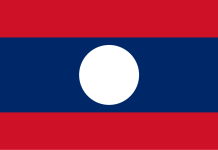The Central Bank of Nigeria (CBN) has stepped up the campaign to rid the country of dirty notes, make lower denominations available and stem the tide of racketeering in new notes, as it approved a disbursement to traders at the Tejuosho Ultra-modern Market, in Lagos.
The lower denominations approved by the management of CBN for the disbursement include N200, N100, N50, N20, N10 and N5 denominations to economic agents.’
This is in continuation of a series of direct disbursements to marketers, merchants, shopping malls, supermarkets, tollgates, among others, with a searchlight on the recipients to ensure compliance to rules.
A top source at the apex bank said that those direct disbursements were matched with unique numbers to a particular recipient and would easily be flagged when used for wrong purposes, like selling the notes at events’ venues.
The Director, Currency Operations Department, Mrs. Priscilla Eleje, at the weekend in Lagos, during the sensitisation programme at the market, said the traders at the market would be entitled to N5000 worth of the lower denominations weekly, which would be done through their bank accounts.
She said that the piecemeal disbursement was to guard against possible abuse or diversion and curtail the scarcity of the lower naira denominations due to hoarding and sale by unscrupulous people.
“In recent time, the bank has observed the inadequate circulation of the lower denomination banknotes and difficulties encountered by economic agents despite huge volume of banknotes injected into circulation on yearly basis.
“Any beneficiary found to violate the procedure would be delisted”, she warned.
She added that CBN ‘recognizes the important role markets play in economic growth, hence the need to ensure accessibility to lower denominations to carry out legitimate economic transactions.
Explaining the framework for the disbursement of these lower denominations, she reiterated that this would be made through commercial banks at no extra cost, while the beneficiaries should ensure that their accounts are funded before any withdrawal would be made.
“Therefore, market associations are not expected to add any cost to their members. In order to guard against possible abuse or diversion of these banknotes, the bank has developed a monitoring framework to ensure the judicious utilisation of the funds disbursed.
“The exercise consists of on the spot-checks to the premises of the beneficiaries after the receipt of disbursement as well as mystery shopper approach to shops, markets and toll gates and any beneficiary found to violate the procedure would be delisted.
The Branch Controller, CBN Lagos, James Iyari, urged the traders not to continue to recycle dirty or mutilated Naira notes, but return such to their banks.
“I want to use this opportunity to urge you to handle the Nigerian banknotes properly.
It is important to let you know that the CBN spends a lot of money to print and process the notes, which is meant to sustain daily economic transactions.
“I I also remind you that it is a criminal offence to abuse the Naira, which is punishable under the CBN Act 2007, by six months imprisonment or a fine of N50,000 or both, when convicted of the sale, spraying or mutilating the banknotes.
It is also a criminal offence to counterfeit the Naira, which attracts five-year imprisonment without an option of fine.”
Speaking on behalf of the traders, the market Leader of Tejoshuo Model Market, Alhaja Titilayo Noyimot, expressed gratitude to the apex bank for making lower denominations available to traders in Lagos markets.
Lamenting that the challenge of getting lower denominations has become real problem for the petty traders in the market, she thanked CBN for making the market the first in Lagos to benefit from the initiative.













